René Vautier
출생 : 1928-01-15, Camaret-sur-Mer
사망 : 2015-01-04
약력
René Vautier, born January 15, 1928 in Camaret-sur-Mer (Finistère) and died January 4, 2015, in Cancale (Ille-et-Vilaine), was a French director and screenwriter, communist and anti-colonialist, particularly known for his film "To be twenty years old in the Aurès".

Lui-même

Director
In 1950, in full reconstruction, the workers of Brest went on strike. It will last more than a month and will be bloody. Edouard Mazé, a 26-year-old worker from Brest, will die during the demonstration on April 17, dozens of his comrades will be injured and one of them, Pierre Cauzien, will be amputated five days later. The city is under siege. René Vautier, a 20-year-old filmmaker, goes clandestinely to Brest, at the call of the CGT, to shoot a film on the reasons for anger. The trace of these events is now tenuous and carried by witnesses whose words are gradually dying out. This film proposes to find the traces of these events, to collect the words of the witnesses, to search their personal archives, to exhume the forgotten photograms, to open the official files hitherto protected, to delve into the depths of individual memories to understand. In 1950, a man died... But who still remembers?

Self
In 1950, in full reconstruction, the workers of Brest went on strike. It will last more than a month and will be bloody. Edouard Mazé, a 26-year-old worker from Brest, will die during the demonstration on April 17, dozens of his comrades will be injured and one of them, Pierre Cauzien, will be amputated five days later. The city is under siege. René Vautier, a 20-year-old filmmaker, goes clandestinely to Brest, at the call of the CGT, to shoot a film on the reasons for anger. The trace of these events is now tenuous and carried by witnesses whose words are gradually dying out. This film proposes to find the traces of these events, to collect the words of the witnesses, to search their personal archives, to exhume the forgotten photograms, to open the official files hitherto protected, to delve into the depths of individual memories to understand. In 1950, a man died... But who still remembers?

(voice)
Guided by a letter from an childhood friend, a young man visits places and people from the past marked by history and commitment. He then meets other people throughout the night, looking for ways to act and imagine collectively.
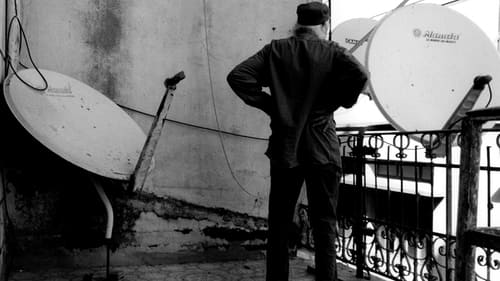
Himself
A documentary road movie with René Vautier
In the aftermath of Algeria's independence, René Vautier, a militant filmmaker, considered "the dad" of Algerian cinema, set up the cine-pops. We recreate with him the device of itinerant projections and we travel the country in ciné-bus (Algiers, Béjaïa, Tizi Ouzou, Tébessa) to hear the voices of the spectators on the political situation, youth and living conditions of men and Of women today.

Lui-même
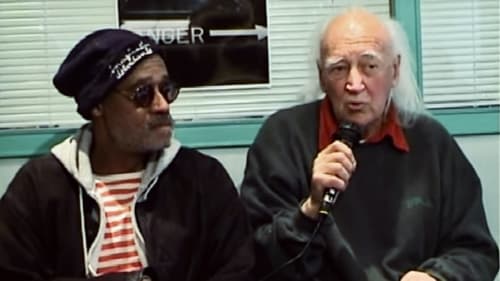
Himself

Himself

Director
During the period Le Pen was running for president, this documentary juxtaposes testimonies from several Algerians who attest they were tortured at his hands while he was a lieutenant in the war.
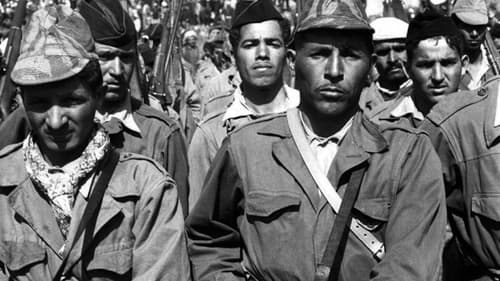
Director

Author
The essay by René Vautier, "Déjà le sang de Mai ensemençait Novembre", starts with the recapitulation of the representations of Algeria throughout the history of visual arts in France in an effort to explore the causes for the quest for independence.

Director
The essay by René Vautier, "Déjà le sang de Mai ensemençait Novembre", starts with the recapitulation of the representations of Algeria throughout the history of visual arts in France in an effort to explore the causes for the quest for independence.

Director
March 16, 1978. The Amoco-Cadiz supertanker tanker sank off Portsall, a small port in northern Finistère. This film sets out to demonstrate the misleading information campaign that followed the accident as well as its disastrous ecological consequences. René Vautier denounces the ridiculous measures then taken by the governments, the financial interests, the traffic of oil tankers and those of the tugs and the role of the media complicit in this policy. Faced with this, the anger of the Breton people and local elected officials who were never consulted.

Director
The action takes place in a metallurgical factory which was part of the Pechiney-Ugine-Külhman trust in Couëron, Loire-Atlantique, in 1975. To show their solidarity with their husbands on strike, workers' wives invaded the director's office and obtained in two hours what was refused to them for months. But the management complained and sued. Twelve wives were charged with forcible confinement. The mobilization then widened. The women called on the Bretagne Cinema Production Unit (UPCB) to make a film about their struggle. Narrating the courageous action of solidarity of women with the strikers of the factory and the emergence of a collective awareness, both feminist and working-class, the film is also an echo chamber sensitive to the aspirations of the twelve women who were charged.

Director
Directed by Nicole Le Garrec and René Vautier.

Director
When the three popes of militant film in Brittany, grouped together in the Union of Breton Film Production (UPCB), respond with talent to an order from fishermen's bosses... Le poisson commande includes some very beautiful images of the work at sea, as well as being an apology for industrial fishing. People of Lorient will be able to discover a fishing port then in full activity.

Director
Anti-apartheid film, co-produced by South Africa's African National Congress

Cinematography
This rambling political melodrama tells the story of a French Breton who learns about colonialism while teaching native students in France's colonies of Tunisia and Algeria and returns to his native Brittany to see that the same conditions prevail there.

Himself
This rambling political melodrama tells the story of a French Breton who learns about colonialism while teaching native students in France's colonies of Tunisia and Algeria and returns to his native Brittany to see that the same conditions prevail there.

Director
This rambling political melodrama tells the story of a French Breton who learns about colonialism while teaching native students in France's colonies of Tunisia and Algeria and returns to his native Brittany to see that the same conditions prevail there.

Director
In his documentary "Humain, Trop Humain," Louis Malle presents his meditative investigation of the inner workings of a French automotive plant.

Director
A filmmaker witnesses an act of racist police violence in Paris. He discusses with a friend whether and how he should make a film out of this.

Himself
A filmmaker witnesses an act of racist police violence in Paris. He discusses with a friend whether and how he should make a film out of this.

Director
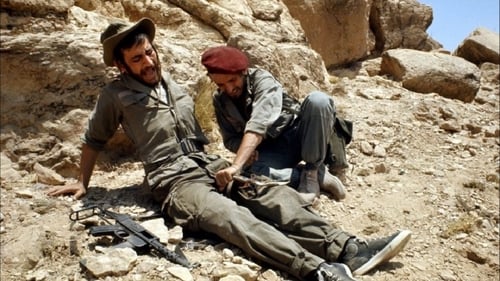
Director
This French war film barely made it past the censors as it is not entirely complimentary about how the French handled themselves in the Algerian War. Four commandos are disciplined for failure to follow orders by being assigned to an especially dangerous and disagreeable mission. Their job is to capture enemy Algerian soldiers.
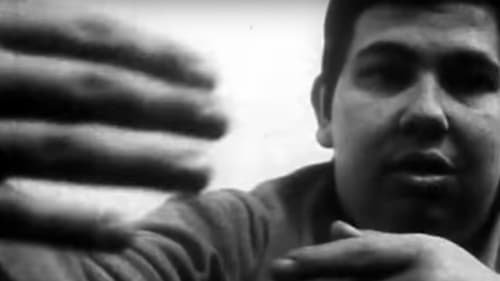
Writer

Director

Director
Returns to ‘La Mer et les jours’ (1958), a film by Alain Kaminker and René Vogel during the filming of which Kaminker disappeared in the sea.

Director
A documentary short about immigrants who come to work in France.

Director
A documentary short on immigrants who come to work in France (the title coming from a kind of gorse plant.)
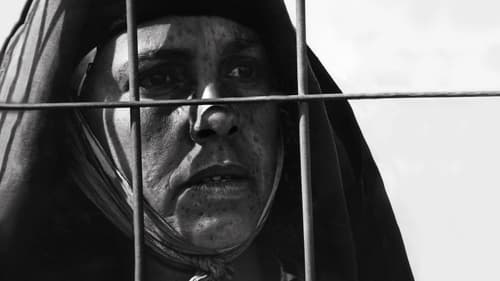
Production Manager
This black-and-white film – the first road movie of Algerian cinema – presents one of the most readily apparent, though subtle, transformations of the daily life of the people of Algeria brought about by the ordeal of French occupation and the war of liberation. With military repression in full force, a peasant woman finds herself alone in her house in the mountains when her only son is taken away by French soldiers soon after her husband is killed in a raid. One day, on seeing a dead chicken, which she considers a bad omen, she decides to leave home, and sets off on a tiring journey through the mountains. With a pair of chickens in tow, she moves from one detention camp to the next in a desperate search for her missing son. The film was inspired by events experienced by the family of its director.

This excellent feature-length documentary - the story of the imperialist colonization of Africa - is a film about death. Its most shocking sequences derive from the captured French film archives in Algeria containing - unbelievably - masses of French-shot documentary footage of their tortures, massacres and executions of Algerians. The real death of children, passers-by, resistance fighters, one after the other, becomes unbearable. Rather than be blatant propaganda, the film convinces entirely by its visual evidence, constituting an object lesson for revolutionary cinema.

Writer
This excellent feature-length documentary - the story of the imperialist colonization of Africa - is a film about death. Its most shocking sequences derive from the captured French film archives in Algeria containing - unbelievably - masses of French-shot documentary footage of their tortures, massacres and executions of Algerians. The real death of children, passers-by, resistance fighters, one after the other, becomes unbearable. Rather than be blatant propaganda, the film convinces entirely by its visual evidence, constituting an object lesson for revolutionary cinema.

Director
Narrated by Djibril Diop this film denounces the hanging of three African revolutionaries in Salisbury, South Africa.
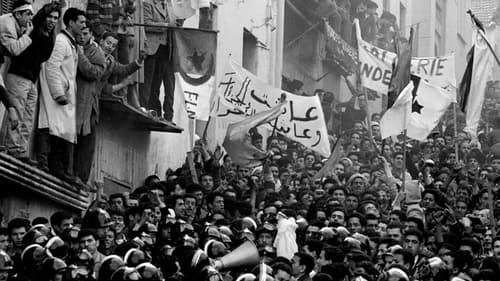
Director
In 1962, René Vautier, together with some Algerian friends, organised the audio-visual formation centre Ben Aknoun to encourage a "dialogue in images" between the two factions. Together with his students he made a film that shows the history of the Algerian War and of the ALN (National Liberation Army), and life during the reconstruction.
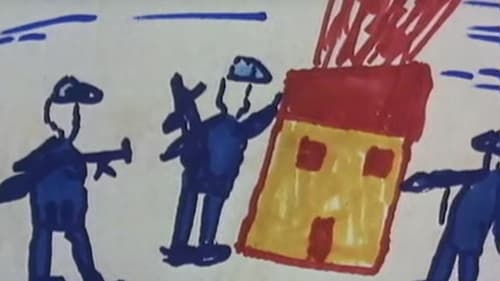
Supervising Art Director
Algerian children, survivors of the war and refugeeing in Tunisian camps, recount the tragic events they have experienced, from drawings they have made themselves.

Writer
Algerian children, survivors of the war and refugeeing in Tunisian camps, recount the tragic events they have experienced, from drawings they have made themselves.

Sound
These are the first images shot in the ALN maquis, camera in hand, at the end of 1956 and in 1957. These war images taken in the Aurès-Nementchas are intended to be the basis of a dialogue between French and Algerians for peace in Algeria, by demonstrating the existence of an armed organization close to the people. Three versions of Algeria in Flames are produced: French, German and Arabic. From the end of the editing, the film circulates without any cuts throughout the world, except in France where the first screening takes place in the occupied Sorbonne in 1968. Certain images of the film have circulated and are found in films, in particular Algerian films. Because of the excitement caused by this film, he was forced to go into hiding for 25 months. After the declaration of independence, he founded the first Algerian Audiovisual Center.

Editor
These are the first images shot in the ALN maquis, camera in hand, at the end of 1956 and in 1957. These war images taken in the Aurès-Nementchas are intended to be the basis of a dialogue between French and Algerians for peace in Algeria, by demonstrating the existence of an armed organization close to the people. Three versions of Algeria in Flames are produced: French, German and Arabic. From the end of the editing, the film circulates without any cuts throughout the world, except in France where the first screening takes place in the occupied Sorbonne in 1968. Certain images of the film have circulated and are found in films, in particular Algerian films. Because of the excitement caused by this film, he was forced to go into hiding for 25 months. After the declaration of independence, he founded the first Algerian Audiovisual Center.

Writer
These are the first images shot in the ALN maquis, camera in hand, at the end of 1956 and in 1957. These war images taken in the Aurès-Nementchas are intended to be the basis of a dialogue between French and Algerians for peace in Algeria, by demonstrating the existence of an armed organization close to the people. Three versions of Algeria in Flames are produced: French, German and Arabic. From the end of the editing, the film circulates without any cuts throughout the world, except in France where the first screening takes place in the occupied Sorbonne in 1968. Certain images of the film have circulated and are found in films, in particular Algerian films. Because of the excitement caused by this film, he was forced to go into hiding for 25 months. After the declaration of independence, he founded the first Algerian Audiovisual Center.

Director
These are the first images shot in the ALN maquis, camera in hand, at the end of 1956 and in 1957. These war images taken in the Aurès-Nementchas are intended to be the basis of a dialogue between French and Algerians for peace in Algeria, by demonstrating the existence of an armed organization close to the people. Three versions of Algeria in Flames are produced: French, German and Arabic. From the end of the editing, the film circulates without any cuts throughout the world, except in France where the first screening takes place in the occupied Sorbonne in 1968. Certain images of the film have circulated and are found in films, in particular Algerian films. Because of the excitement caused by this film, he was forced to go into hiding for 25 months. After the declaration of independence, he founded the first Algerian Audiovisual Center.

Commentator
At the time of Tunisian independence, owners of large boats decide to sell, while many small fishermen soon find themselves without work. Their wives then decide to pool their gold rings to sell them and thus buy boats.

Director
At the time of Tunisian independence, owners of large boats decide to sell, while many small fishermen soon find themselves without work. Their wives then decide to pool their gold rings to sell them and thus buy boats.
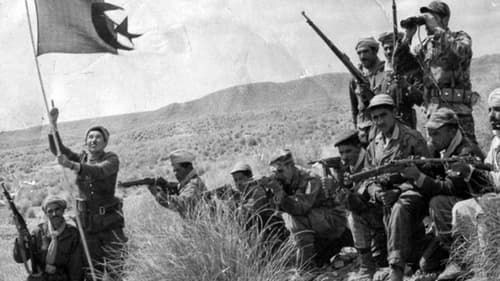
Director

Producer
Afrique 50 is a 1950 French documentary film directed by René Vautier. The first French anti-colonialist film, the film derived from an assignment in which the director was to cover educational activities by the French League of Schooling in West Africa. Vautier later filmed what he saw, a "lack of teachers and doctors, the crimes committed by the French Army in the name of France, the instrumentalization of the colonized peoples". For his role in the film Vautier was imprisoned over several months. The film was not permitted to be shown for more than 40 years.

Editor
Afrique 50 is a 1950 French documentary film directed by René Vautier. The first French anti-colonialist film, the film derived from an assignment in which the director was to cover educational activities by the French League of Schooling in West Africa. Vautier later filmed what he saw, a "lack of teachers and doctors, the crimes committed by the French Army in the name of France, the instrumentalization of the colonized peoples". For his role in the film Vautier was imprisoned over several months. The film was not permitted to be shown for more than 40 years.

Writer
Afrique 50 is a 1950 French documentary film directed by René Vautier. The first French anti-colonialist film, the film derived from an assignment in which the director was to cover educational activities by the French League of Schooling in West Africa. Vautier later filmed what he saw, a "lack of teachers and doctors, the crimes committed by the French Army in the name of France, the instrumentalization of the colonized peoples". For his role in the film Vautier was imprisoned over several months. The film was not permitted to be shown for more than 40 years.

Cinematography
Afrique 50 is a 1950 French documentary film directed by René Vautier. The first French anti-colonialist film, the film derived from an assignment in which the director was to cover educational activities by the French League of Schooling in West Africa. Vautier later filmed what he saw, a "lack of teachers and doctors, the crimes committed by the French Army in the name of France, the instrumentalization of the colonized peoples". For his role in the film Vautier was imprisoned over several months. The film was not permitted to be shown for more than 40 years.

Récitant / Narrator
Afrique 50 is a 1950 French documentary film directed by René Vautier. The first French anti-colonialist film, the film derived from an assignment in which the director was to cover educational activities by the French League of Schooling in West Africa. Vautier later filmed what he saw, a "lack of teachers and doctors, the crimes committed by the French Army in the name of France, the instrumentalization of the colonized peoples". For his role in the film Vautier was imprisoned over several months. The film was not permitted to be shown for more than 40 years.

Director
Afrique 50 is a 1950 French documentary film directed by René Vautier. The first French anti-colonialist film, the film derived from an assignment in which the director was to cover educational activities by the French League of Schooling in West Africa. Vautier later filmed what he saw, a "lack of teachers and doctors, the crimes committed by the French Army in the name of France, the instrumentalization of the colonized peoples". For his role in the film Vautier was imprisoned over several months. The film was not permitted to be shown for more than 40 years.

Director
René Vautier discovers, by the light of a flashlight, his films cut and scattered at the Fort du Conquet. Police also came to inspect the damage.

Réalisateur


















